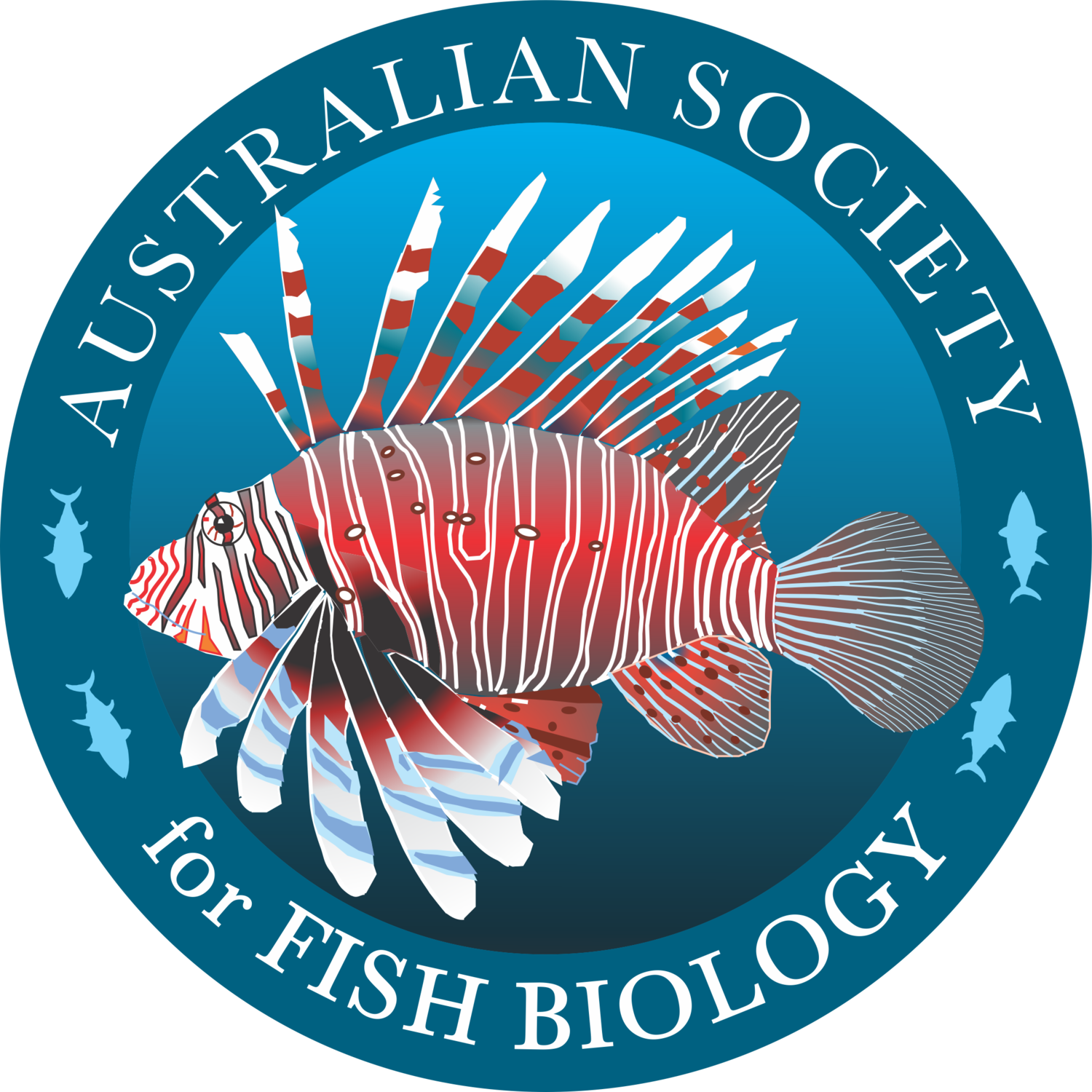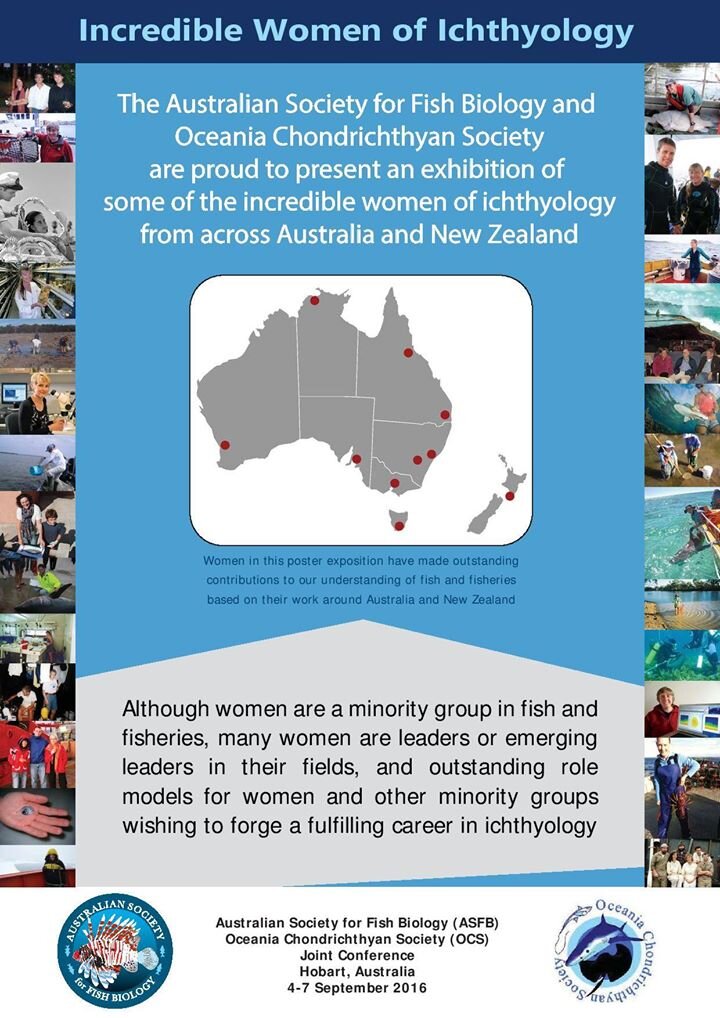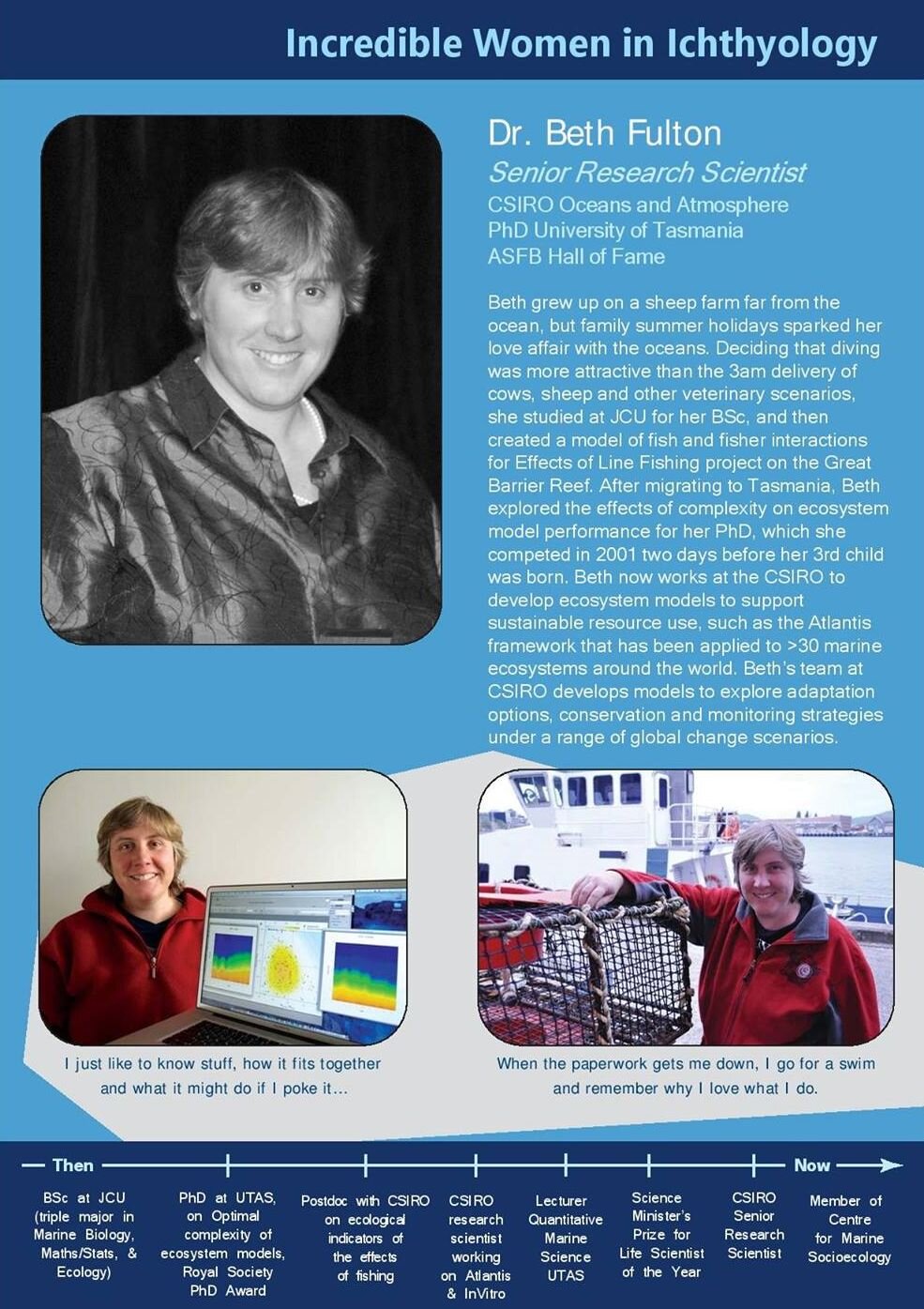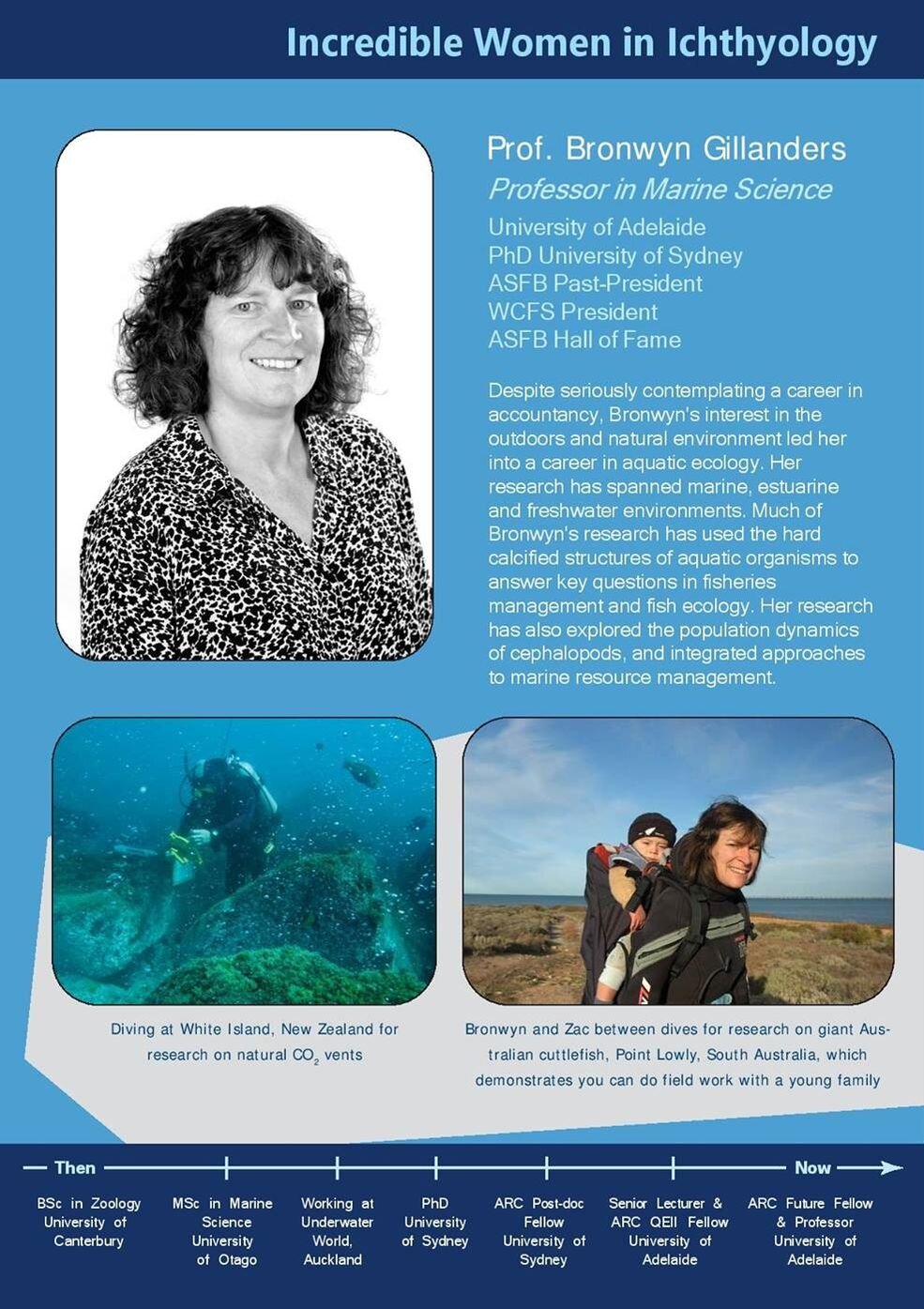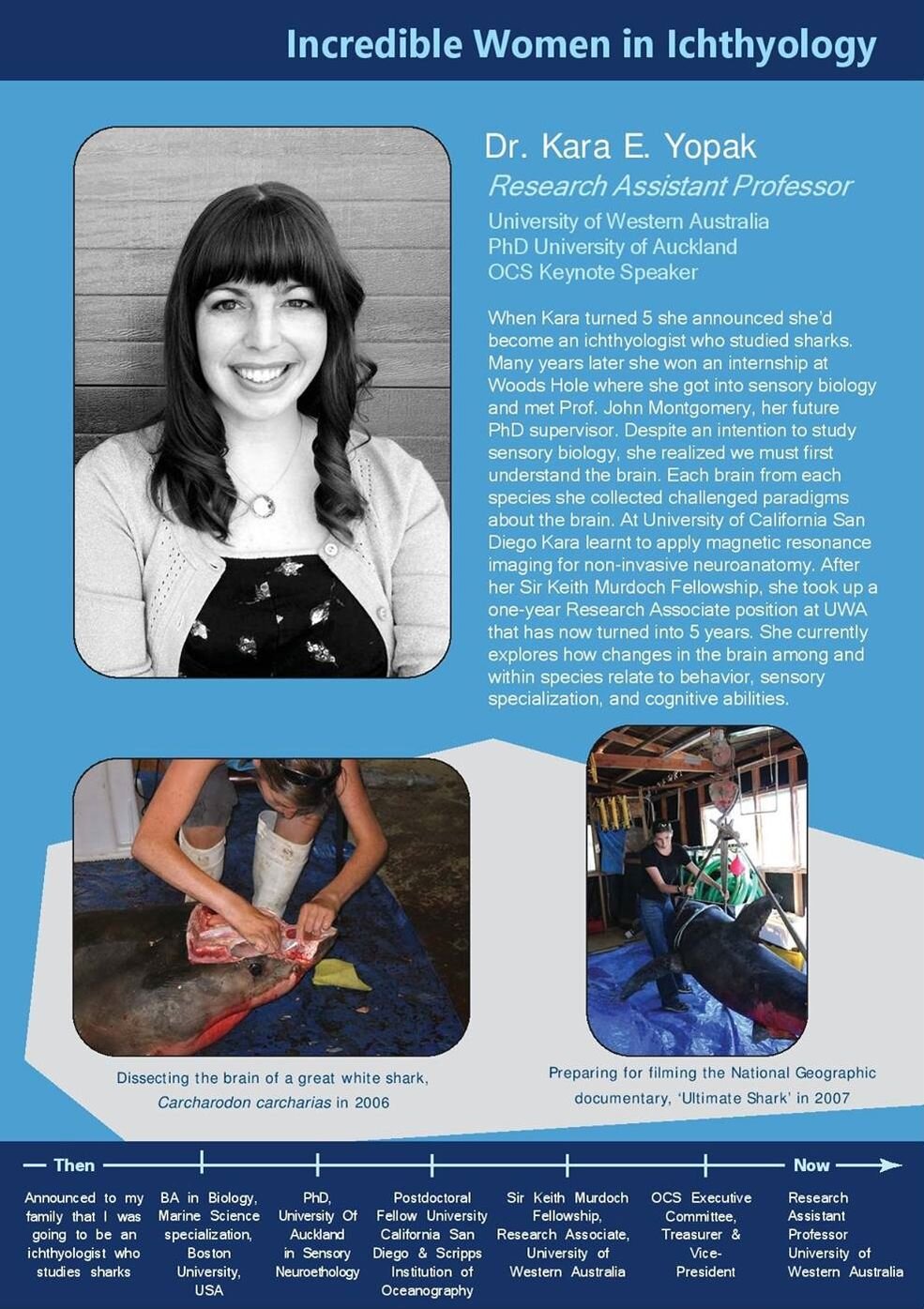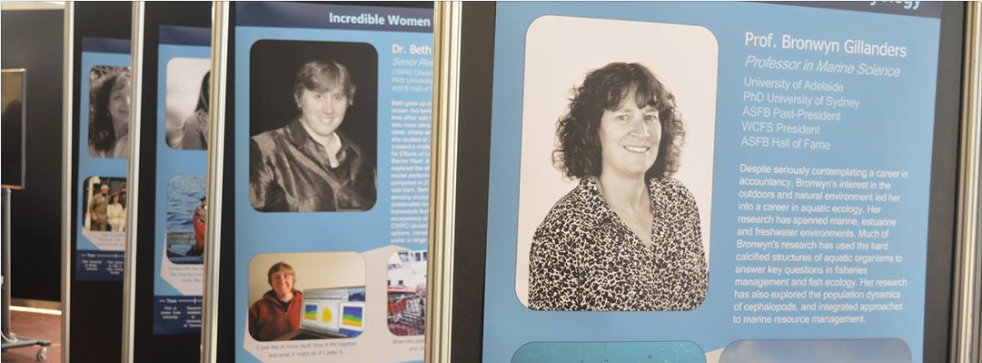
Celebrating and supporting women in ichthyology
At the 2016 ASFB-OCS joint conference (September 4-7), we celebrated gender diversity in fish and fisheries research. Opening day included a 'Women in Ichthyology' session, including talks by six keynote speakers, as well as a discussion forum and poster exhibition.
In recent decades, we’ve made great strides in achieving higher representation of women in research. But the job is far from done. Women are often equally represented at lower tiers of research, such as PhD level, but rapidly dwindle as we ascend the professional hierarchy. This has been called the ‘leaky pipeline’, and it needs to be addressed.
“Gender inequity remains a major issue for fisheries agencies around the world," said ASFB President Chris Fulton. "At this conference we are celebrating the key contributions of women to our field, and exploring how we can all encourage gender equity in fish and fisheries science.”
Poster exhibition
The Incredible Women in Ichthyology poster exhibition, on display in the conference foyer, highlights just a handful of the brilliant women involved in fish and fisheries research. It is hoped that their achievements will help inspire the next generation of researcher.
Keynotes and panel discussion
Six researchers featured in the poster exhibition presented their latest work as invited keynote speakers. They also took part in a gender equity panel discussion, joined by Chris Fulton and OCS President Andrew Chin. The panel sparked conversation on the challenges of achieving gender equity in fish research, and how we can all make a difference.
Michelle Heupel (James Cook University and AIMS) paid tribute to the legendary American shark researcher Eugenie Clark, and described how far gender equity has come in recent decades. When Heupel began her research on sharks, she was often “the only woman on the boat the majority of the time”. However, today there are large numbers of women pursuing their fascination with sharks.
One of those women is Kara Yopak (University of Western Australia), who has spent the last decade studying shark brains and making some remarkable insights into the evolution of neural systems. She has been obsessed with sharks since the age of five. Encouraging girls to pursue STEM subjects is important, Yopak said, but it isn’t enough to combat gender inequity. “It's not about stuffing more girls into the pipeline at one end, but supporting them throughout their career," she said.
Gretta Pecl (University of Tasmania) had to deal with perceptions that she was "not a serious career scientist" while working part-time earlier in her career. However, she has since forged a successful career, and her Redmap Australia project was recently shortlisted for a Eureka Prize.
Jodie Rummer (James Cook University), who last year won a UNESCO L'Oreal Women in Science fellowship, described how climate change might affect physiological performance in fish. Gretchen Grammer (SA Research and Development Institute) is only a year out of her PhD, but is making waves with some fantastic research using fish otoliths to detect environmental change over time.
Bronwyn Gillanders (University of Adelaide), former ASFB President and current President of World Council of Fisheries Societies, described what she sees as two major steps for achieving gender equity: removing barriers to women and addressing unconscious bias. The panel also discussed the value of mentors for early-career researchers ‒ and these mentors needn’t be women, either. Everybody has a part to play in providing a fair and supportive environment for all students and colleagues.
If you’d like to reduce gender inequity in your workplace, here are some small, everyday habits that can make a big difference in the long run:
The ASFB-OCS joint conference took place in Hobart, Tasmania from September 4-7, 2016. This brief summary was prepared by Andrew Katsis, Communications Manager for the Australian Society for Fish Biology.
